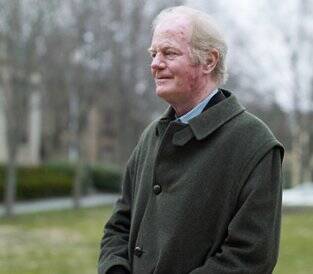Jonathan Schell, who died in Brooklyn on March 25 at the age of 70, was more than a great journalist; he was what every journalist aspires—or should aspire—to be: a moralist, a prophet, a soul of deep integrity. I suppose I should use those adjectives with caution, since I regret that we never met or talked. It’s a judgment based on his writings, which not only affected my moral judgments but the minds, I suspect, of millions searching for meaning during the moral chaos of the Vietnam War up to his recent article in The Nation (Sept 10, 2012) on the Republicans’ “strong desire to take up residence in an imaginary world,” one where global warming is a fraud.
In his early writings, in his 20s, he published in the New Yorker, “The Village of Ben Suc.” Based on his own observations on a visit to Vietnam, the article detailed the American policy of destroying villages suspected of being havens for the Viet Cong by bombing them and resettling the inhabitants, meanwhile disposing of the dead villagers by dumping them in the river. He followed with The Abolition, describing the destruction of two more villages. I devoted a chapter in Dante to Dead Man Walking: One Reader’s Journeythrough the Christian Classics to both books. Although after Harvard he studied for a year at a Christian University in Tokyo, I have no idea whether he was a believer in the formal sense, but his writings burst with the most profound tenets of Christian teaching: the respect for human life and our responsibility to the whole of mankind.
He began The Abolition with a quote from Pope John Paul II’s speech in Hiroshima in 1981: “In the past, it was possible to destroy a village, a town, a region, even a country. Now it is the whole planet that has come under threat. This fact should fully compel everyone to face a basic moral consideration: from now on it is only through a conscious choice and then deliberate policy that humanity can survive.”
Schell’s worldview is based on the understanding that nuclear war, even after the cold war, could mean the end of the human species. It is a view that religiously committed persons in this age should share. Our spirit of moral deterrence, he felt, must be based on the realization of what we would do to the enemy “and to countless innocents, including all potential future generations of human beings” with nuclear weapons.
As he dismantles the logic of the deterrence strategy, by which we threaten to annihilate an enemy who threatens to annihilate us, he states boldly: “It would be immoral to use nuclear weapons first, so it is also immoral to threaten to do so. And once we have been attacked, to retaliate would merely be an act of revenge, an insane action that would multiply the destruction already inflicted on the globe.”
It is 30 years since he wrote that line. How many moral leaders today—religious or secular—have the courage to state that principle today? We will miss Jonathan’s voice, and his soul.








